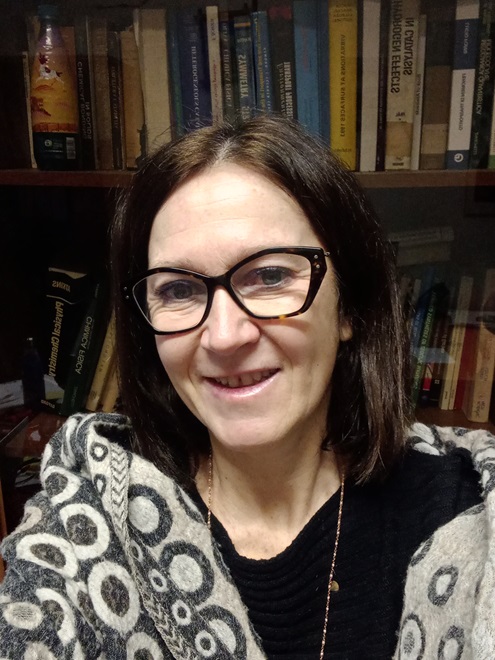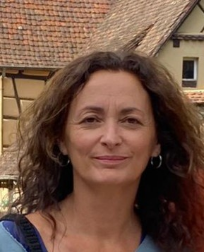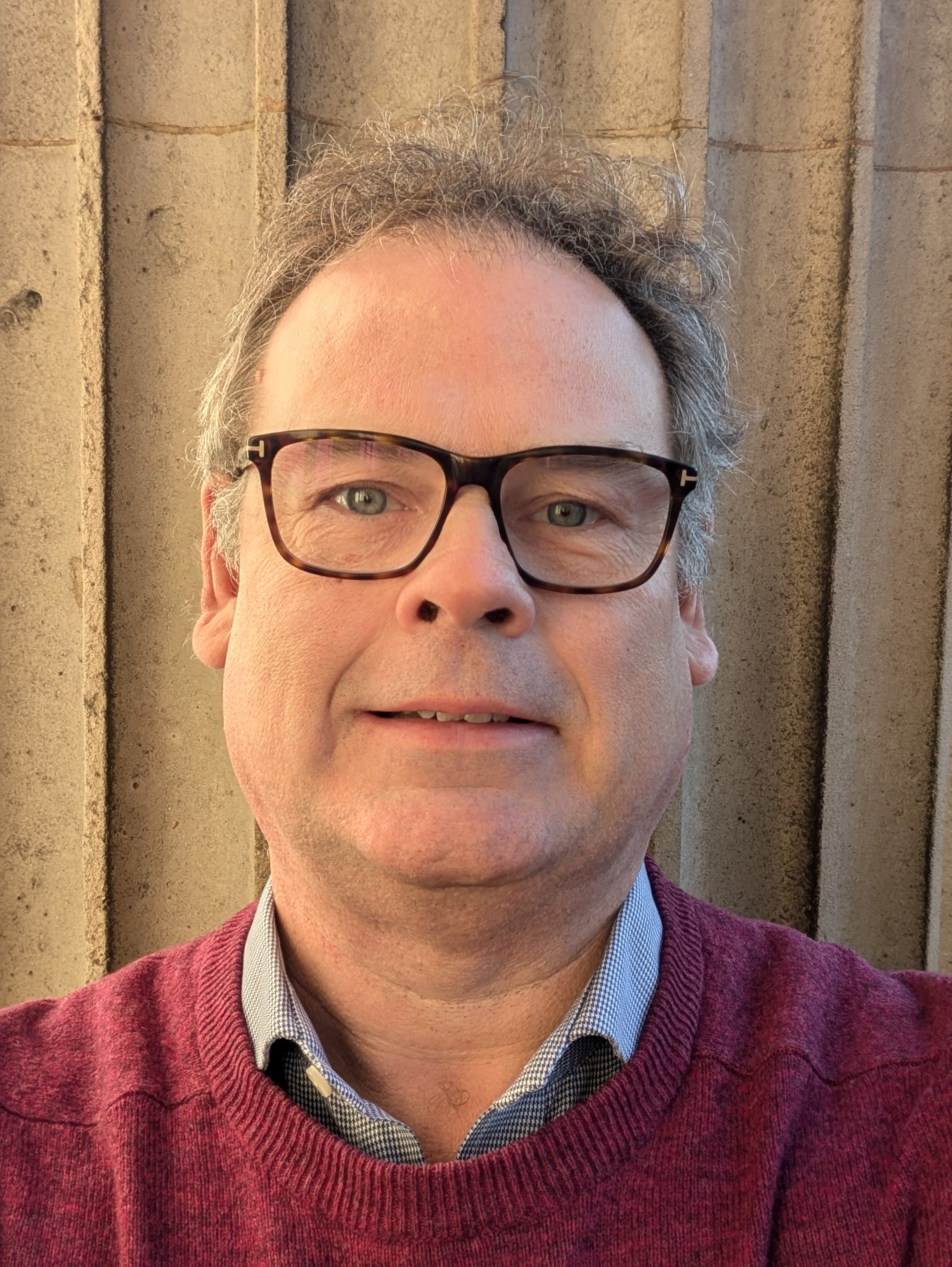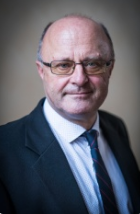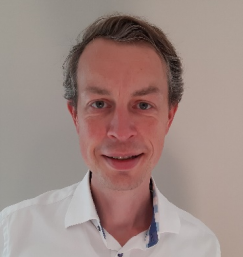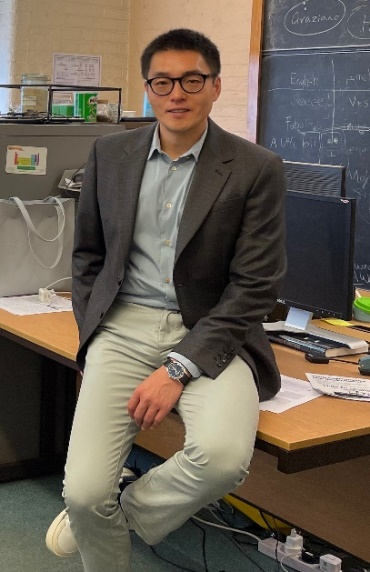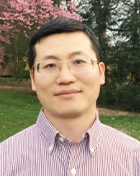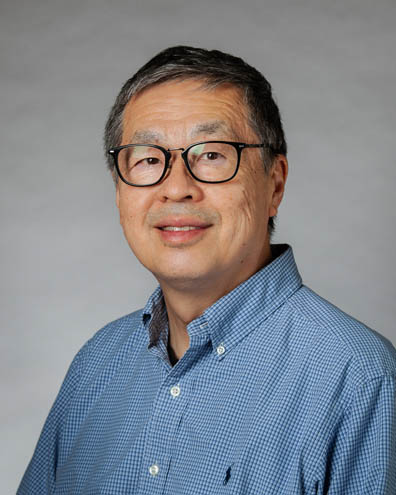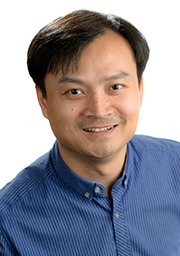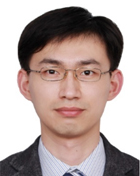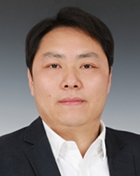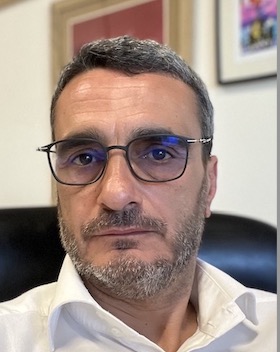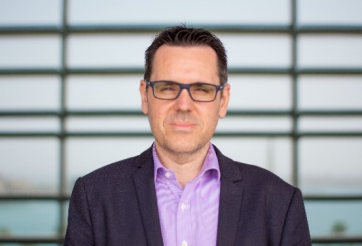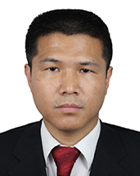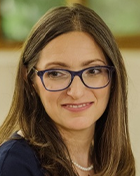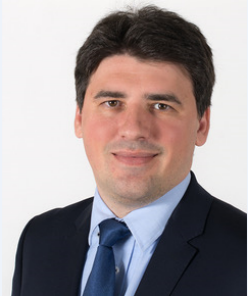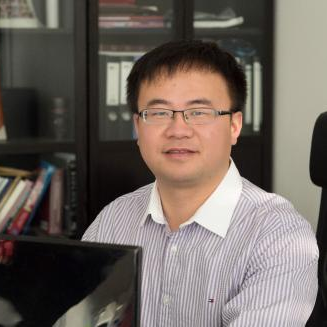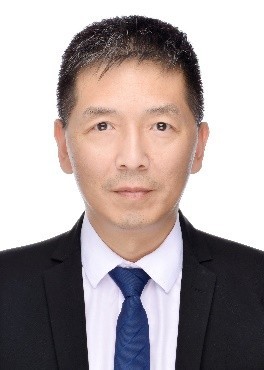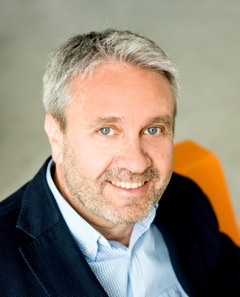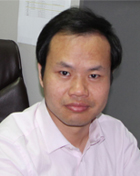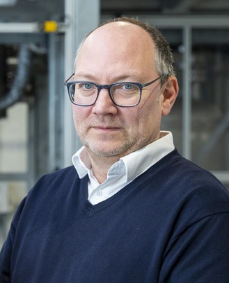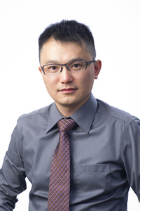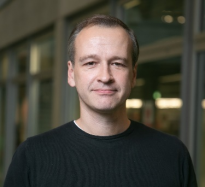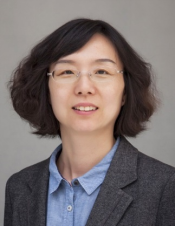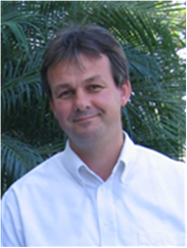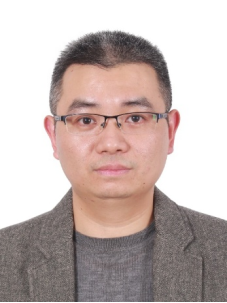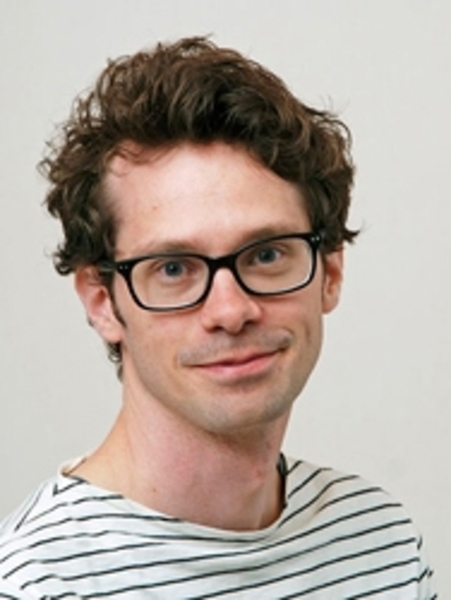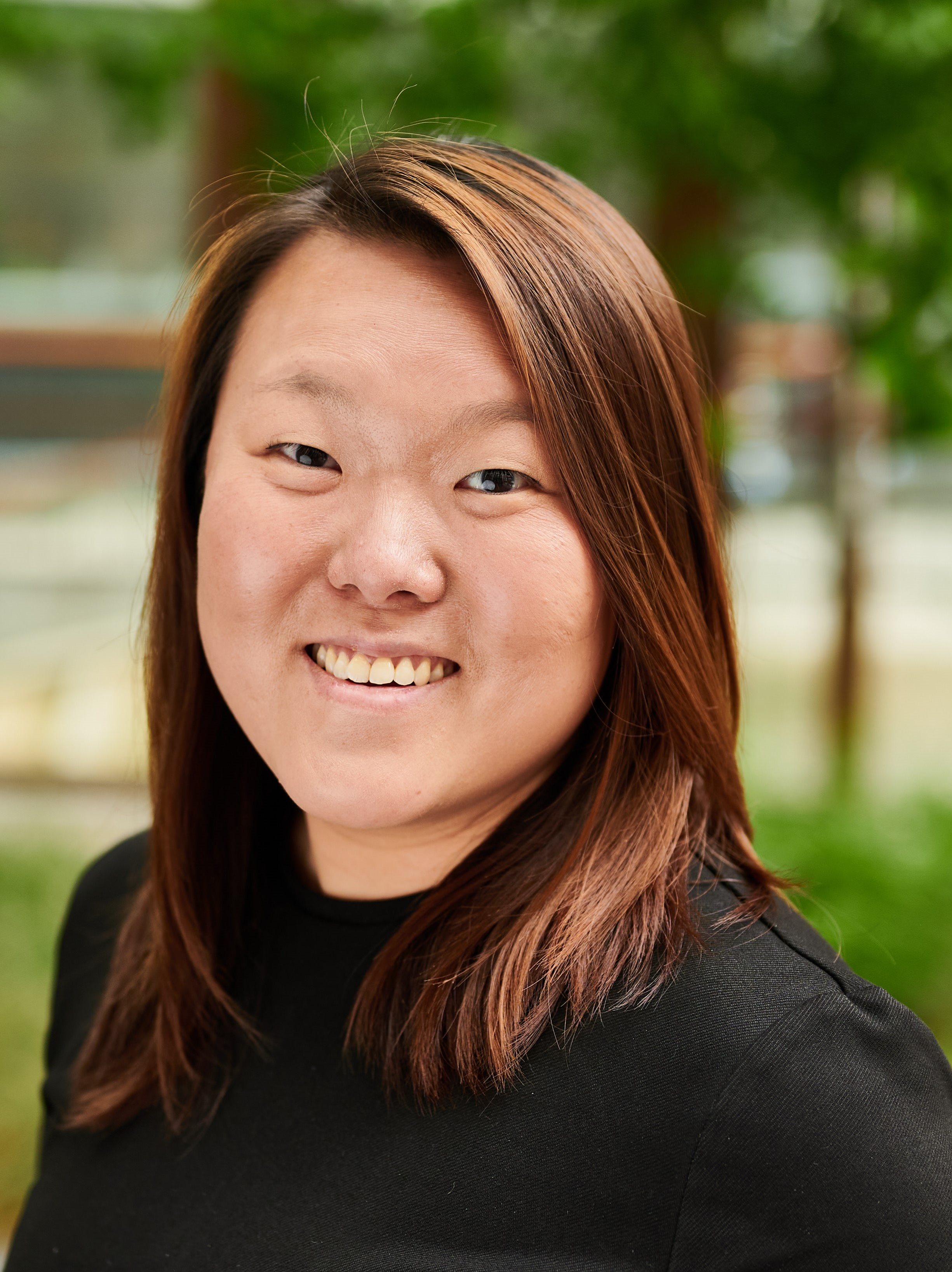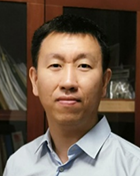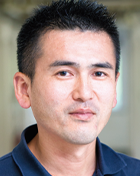|
|
Prof. Gloria Berlier University of Turin Gloria Berlier is Full Professor in Physical Chemistry at the University of Turin, Italy. She is the coordinator of the MSCA-ITN project CHASS: ‘Cu-CHA zeolite-based catalysts for the selective catalytic reduction of NOx in exhaust diesel gas: addressing the issue of Sulfur Stability’. She has worked as post-doctoral research assistant at the Davy Faraday Research Laboratories of the Royal Institution in London. Among her research topics, she has been mainly concerned with the characterization of heterogeneous catalysts, focusing on the structure and reactivity of surface sites for applications ranging from environmental catalysis to prebiotic chemistry. Her experimental approach involves in situ and operando optical spectroscopies, electronic microscopy and structural techniques. | Prof. Mercedes Boronat Universidad Politècnica de València Specialized in computational chemistry applied to heterogeneous catalysis, her work focuses on the theoretical study of reaction mechanisms on solid catalysts such acid zeolites, metal oxides, metal clusters and nanoparticles, MOFs, etc., aiming to identify the specific active and selective centers and use this information to guide the design of improved materials. Co-author of 130 articles in prestigious international journals, two book chapters and four patents, and supervisor of seven doctoral theses, two of them in progress. |
|
|
Prof.Robert Bell University College London Robert Bell was educated at University College London (UCL) and the University of Southampton. He spent over 15 years as a researcher at the Davy Faraday Research Laboratory of the Royal Institution of Great Britain, moving to the Chemistry Department at UCL in 2005. His research involves the application of computational chemistry methods to the science of zeolites and microporous materials. Areas of interest have included sorption and diffusion of gases in zeolites, including modelling of CO2 capture; catalysis in zeolitic systems, and the structure and stability of microporous materials, extending into the field of hypothetical zeolites. He was previously Chairman of the British Zeolite Association (2012-15), and currently serves as Chair of the Structure Commission of the international Zeolite Association. | Prof. Jiří Čejka Charles Univ Prof. Jiří Čejka is currently a Professor at the Department of Physical and Macromolecular Chemistry at the Faculty of Science, Charles University in Prague. In 2005 he chaired the 3rd FEZA Conference on Zeolites in Prague and is an organizer of Workshops on zeolites and catalysis, e.g. the EFCATS School on Catalysis in 2018. His research interests include synthesis of zeolites and nanoporous materials and their applications in adsorption and catalysis. Jiří Čejka is the co-author of 400 papers, co-editor of 6 books. He is a principal investigator of projects supported by the Czech Science Foundation and Horizon Europe. He received the FEZA baron Axel F. Cronsted Award in 2020, jointly with W. Roth. |
|
|
Prof. Fei-Jian Chen Jilin University (China) Prof. Fei-Jian Chen is currently a full Professor at Jilin University (China). He earned his PhD from Nanjing University in 2014,then he went to Bengbu Medical College as an associate professor (2014-2022). In 2022, he joined in the State Key Laboratory of Inorganic Synthesis and Preparative Chemistry, Jilin University, and is a member of International Center of Future Science, Jilin University. In 2024, he received National Funds for Distinguished Young Scientists. His research mainly focuses on rational synthesis of new type of large and extra-large pore zeolites. He is the main inventor of new type of zeolites named by NUD series and ZEO series. | Prof. Dirk De Vos KU Leuven Dirk De Vos has been a Full Professor in Catalysis at KULeuven since 2006. He is fascinated by the applications of zeolites and molecular sieves in general (including MOFs) to adsorption and catalytic reactions of organic molecules. Particular fields of interest are C-H activation of arenes, oxidative transformations (possibly with electro-assistance), CO2 activation to chemicals, depolymerization of step-growth polymers, and functionalization of polyolefins. From 2015 till 2024, he was an Associate Editor at RSC’s Catalysis Science and Technology. He was Department Head at KULeuven from 2010 till 2018, and is since 2023 Vice-Dean Education of the Bio-Engineering Faculty at KULeuven. His awards include the Donald Breck Award of the IZA and the BASF catalysis award. |
|
|
Dr. Johan den Breejen Shell Global Solutions International Johan den Breejen received his PhD in inorganic chemistry and catalysis from Utrecht University (2010), The Netherlands. Afterwards, he joined Shell’s technology center in Amsterdam and has been working in the fields of emerging technologies and GTL. Since 2015 he has been specializing in hydrocracking catalyst development as a senior researcher. His areas of interest include synthesis of zeolites and hydrocracking catalysts – bridging the whole range from discovery and detailed analyses to scale-up and commercial deployment in refinery units. | Prof. Mohamed Eddaoudi KAUST |
|
|
Prof. Xiaolei Fan The University of Manchester Xiaolei Fan is a researcher with 15-year experience in porous materials and heterogeneous catalysis. He received PhD in Chemical Engineering from the University of Bath in 2010, he took the postdoctoral positions at the University of Warwick and University of Cambridge in 2010-2013, and he is a faculty member at The University of Manchester since 2013. He is the elected Fellow of Royal Society of Chemistry and Higher Education Academy in the United Kingdom. He has published 200+ peer-reviewed articles in his fields with a H index of 47. | Prof. Qianrong Fang Jilin University Professor Qianrong Fang obtained both his Bachelor’s degree in 2001 and his Ph.D. in 2007 from Jilin University, China. From 2007 to 2014, his postdoctoral research took him to leading institutions in the United States, including UCLA, Texas A&M, UC Riverside, and the University of Delaware. In 2015, he returned to Jilin University as a full professor at the State Key Laboratory of Inorganic Synthesis & Preparative Chemistry. His research focuses on the design and synthesis of covalent organic frameworks (COFs), with applications in adsorption, separation, and catalysis. |
| |
Prof. Yining Huang The University of Western Ontario Dr. Yining Huang earned his B.Sc. and M.Sc. from Peking University and his Ph.D. from McGill University, followed by postdoctoral research at the University of British Columbia. He is currently a Full Professor in the Department of Chemistry at The University of Western Ontario. Dr. Huang has published over 250 peer-reviewed papers, with research mainly focused on the characterization of inorganic materials, including layered materials, zeolites, mesoporous materials, and metal-organic frameworks, using vibrational and particularly solid-state NMR spectroscopy. | |
|
|
Prof. Jun Huang The University of Sydney Professor Jun Huang received his PhD from University of Stuttgart in 2008. After his postdoctoral fellow at Georgia Institute of Technology and ETH Zurich, he joined the University of Sydney as a permanent faculty in 2010, moving up the ranks to Professor at Sydney. Jun is the Domain Leader of Materials in Nanoscale at Sydney Nano, Sydney Nano CO2Zero Grand Challenge Champion, and the Academic Leader of University of Sydney – Zhejiang University Joint Lab on Sustainable Environment. His research is to develop emerging nanoporous catalysts and supported nanometal catalysts for more attractive, practical, and cleaner processes using in situ characterization techniques coupled with innovative reaction engineering. Jun has published over 230 journal publications in high-rank Journals. He has been awarded over AU$ 12m research grants and many prestigious awards including ACS Sustainable Chemistry & Engineering Lectureship Award, CCST-IChemE Carbon Capture Outstanding Achievement Award, Australia’s Most Innovative Engineer, and the Vice-Chancellor’s Awards for Excellence Outstanding Research. Jun is the Editor-in-Chief of Materials Today Sustainability, Editorial Group Member of National Science Review, and the Editorial Board member of other high-rank journals. | Prof. Jiuxing Jiang Sun Yat-sen University Jiuxing Jiang, was born in 1983, obtained his Bachelor degree of chemistry and Ph.D. degree of inorganic chemistry at Jilin University in 2005 and 2010 respectively. 2011-2015 he had a postdoctoral stay in Instituto de Tecnologia Quimica (CSIC-UPV) in Valencia, Spain. And then, he moved to School of Chemistry, Sun Yat-sen University and started his independent research work. The research interests mainly focused on: 1)Discovery of novel type of zeolite with independent topology; 2) The synthesis of small pore zeolite and its application on NH3-SCR catalysis; 3) Zeolite with intrinsic amphiphilicity its application on the Pickering Interfacial Catalysis. He published more than 40 leading journal research articles including Science, J. Am. Chem. Soc., Angew. Chem. Int. Ed., Etc. His discovery of novel zeolite leads 5 three-letter codes(IRR,-IRY,-IFU, -SYT,-IRT) of Structure Database of International Zeolite Association. Now, he also acts as the member of the Chinese Zeolite Association, Youth Editorial Board of Chemical Research in Chinese University, etc. |
|
|
Prof. Wei Li Fudan University Wei Li, Yangtze River Scholar Distinguished Professor at Fudan University. He has published more than 200 SCI papers in Nature Sustain., Nature Protoc., Nature Commun., Sci. Adv., J. Am. Chem. Soc., Angew. Chem. Int. Ed., Adv. Mater., Natl. Sci. Rev., etc., which have been cited more than 30,000 times. H-index 95. He has won the first prize of the National Natural Science Award in 2020 (the second complete adult). He is currently a member of the International Mesostructured Materials Association, the Energy Chemistry Committee of the Chinese Chemical Society, and a member of the editorial working group of National Science Review. | Prof. Landong Li Nankai University Landong Li is a distinguished professor at College of Chemistry, Nankai University. Prof. Li directs comprehensive research on zeolites and zeolite catalysis, with focus on the unique chemical behaviors in the confined space of zeolites. He has published over 200 peer-reviewed papers in Science, National Science Review, Chem, J Am Chem Soc, etc. He currently serves as an editorial board member of Chinese Journal of Catalysis and a member of editorial working group of National Science Review. |
|
|
Prof. Massimo Migliori UNICAL, Rende | Prof. Masahiko Matsukata Waseda University Prof. Masahiko Matsukata received his B.Eng. (1984) and PhD degrees (1989) at Waseda University. He joined the Departmet of Industrial Chemistry, Seikei University (1989) and the Department of Chemical Engineering, Osaka University (1992) as a research associate. After being promoted to Associate Professor at Osaka University (1997), he moved to Department of Applied Chemistry, Waseda University (2001). He was promoted to be full professor at Waseda University (2001). He has held positions in the following societies: Council Member of IZA (2021-2022), Chair of Green Sustainable Chemistry Network, Japan, (2010-current), President of the Society of Chemical Engineers, Japan (2022-2023), President of Japan Association of Zeolites (2016-2022), and Vise President of Japan Petroleum Institute (2022-2024). |
| |
Prof. Guillaume Maurin University of Montpellier Guillaume Maurin is a Full Professor at the University of Montpellier and a distinguished Senior Chair at the Institut Universitaire de France. His research focuses on developing and applying advanced modelling/numerical simulation tools to aid the design of innovative nanoporous materials for energy and environmental applications. | Prof. Xiangju Meng Zhejiang University Prof. Xiangju Meng obtained his B.S. degree (1999) and Ph.D. degree (2004) at Jilin University, China. After postdoctoral research in Tokyo Institute of Technology (Japan) and National Institute of Advanced Industrial Science and Technology (AIST, Japan), he joined Prof. Xiao’s group. In 2009, He moved to Department of Chemistry, Zhejiang University and promoted to be a full professor at Zhejiang University in 2015. In 2021, he became a distinguished professor at Department of Chemistry, Zhejiang University. |
|
|
Prof. Svetlana Mintova Normandie University Director of Research 1st Class at CNRS at LCS-ENSICAEN-Normandy University, and Head of the Centre for Zeolites and Nanoporous Materials. Her research focuses on porous materials, with expertise in zeolite synthesis, advanced characterizations, and applications in catalysis, separation and biomedicine.She has received several awards, including the Baron Axel Cronstedt Award from the European Zeolite Association Federation (FEZA), the Donald Breck Award from the International Zeolite Association (IZA), Les Étoiles de l'Europe (Stars of Europe), the Flanigen Lecture Award in Materials Science at Honeywell UOP, Le Prix La Recherche Chimie in France, the Honorary Award from the French Zeolite Association (GFZ), the Shandong International Science and Technology Cooperation Award and Qingdao Award in China. She serves as President of the International Zeolite Association (IZA) and Chair of the Synthesis Commission. She is also an Associate Editor for Inorganic Chemistry Frontiers (RSC) and Editor of Microporous Mesoporous Materials(Elsevier).In 2022, she was awarded an ERC Advanced Grant. She has been selected to carry the Olympic flame for Paris 2024, symbolizing academic excellence and sporting spirit. | Prof. Xiu-Lian Pan Dalian Institute of Chemical Physics, Chinese Academy of Sciences Xiulian Pan is a Professor of the Dalian Institute of Chemical Physics (DICP), Chinese Academy of Sciences. She leads a research team, being dedicated to catalytic chemistry of C1 molecules, including CO, CO2 and CH4, as well as catalytic upcycling of waste polymers and mild condition ammonia synthesis. Therefore, synthesis of zeolitic materials and utilization is one of her interests. She has received a number of distinguished awards including the NSFC Award for Distinguished Young Scholars (2014), CCS-BASF Youth Innovation Prize (2014), the Young Woman Scientist Award of China (2017) and The First Prize of National Natural Science Award (2020) among others. She serves on a number of advisory boards of scientific journals. |
|
|
Prof. Ana Palčić Ruđer Bošković Institute Ana Palčić (Zagreb, Croatia) studied chemistry at the University of Zagreb and completed her PhD thesis at the same University. She has worked as a post-doctoral fellow in the group of Prof. Valentin Valtchev in Laboratory of Catalysis and Spectroscopy in Caen, France. In 2015 she was promoted to research associate at the Ruđer Bošković Institute while in 2022 was appointed senior research associate. At present Dr Palčić is the president of the Croatian Zeolite Association and member of the Federation of European Zeolite Associations board. Her research is focused on green synthesis of zeolites with pre-determined properties for application in catalysis and environment protection. | Dr.Andrei Parvulescu Andrei Parvulescu received his PhD from KU Leuven (2008) followed by a postdoctoral stay at Utrecht University. In 2011, he joined the BASF SE, Ludwigshafen in the Process Research & Chemical Engineering department working on zeolite research catalysis. After a short hospitation with the BASF Petrochemical Business Division (2019), he joined in 2020 the BASF Monomers Division as Global Technology Manager. His areas of interests include synthesis of zeolites, MOF´s and mixed oxide catalysts, characterization as well their scale up to commercial production and the application of these materials as catalysts or adsorbers in new or existing chemical processes. From 2018 until 2020 he was managing the BASF research network INCOE (International Network of Centers of Excellence in Zeolite Catalysis with academic partners from Japan, China, Belgium, Germany). Andrei Parvulescu co-authored 65 publications in peer-reviewed scientific journals and is co-inventor of 145 patents and patent applications. Since 2019 he serves as an elected member of the Advisory Board of the German Zeolite Association of Dechema. |
|
|
Prof.Sibele Pergher Federal University of Rio Grande do Sul Graduated in Chemical Engineering from the Federal University of Rio Grande do Sul (1990), Master in Chemical Engineering from the State University of Maringá (1993), and Doctor in Chemistry from the Polytechnic University of Valencia/Spain (1997). She completed her postdoctoral studies at the Institute of Chemistry of UFRGS (2002 and 2009). She was recently a visiting researcher at the University of Leipzig/Germany (2024). | Prof. Zhen-An Qiao Jilin University Zhen-An Qiao received his B.S. degree (2006) and Ph. D. degree (2011) at Jilin University, China. After the postdoc research at University of Tennessee (2011–2012) and Oak Ridge National Laboratory (2012–2015), he became a professor of inorganic chemistry at the State Key Laboratory of Inorganic Synthesis and Preparative Chemistry, Jilin University. He is committed to the research of synthetic chemistry of mesoporous materials for catalysis, energy storage devices and electrode materials for batteries. More than 100 SCI papers have been published by Zhen-An Qiao as corresponding authors in JACS, Angew. Chem. Int. Ed., Adv. Mater., Nat. Commun., etc., and the non-self-citations are more than 7000 times. He served as council member of International Mesostructured Materials Association Council. |
|
|
Prof. Donghai Mei Dr. Donghai Mei is a professor in the School of Environmental Science and Engineering at Tiangong University. He received his Ph.D. degree from University of Petroleum (China) in 1996. From 1997 to 2006, he conducted postdoctoral research at Tsinghua University (China) and University of Virginia (USA). Since 2006, Dr. Mei worked as a senior researcher at the Pacific Northwest National Laboratory (PNNL) of U.S. Department of Energy. In 2018, Dr. Mei returned to China and took a full-time professor position at Tiangong University. Dr. Mei’s research focuses on the heterogeneous catalysis using first-principles based multiscale theoretical modeling, in particular, reaction mechanisms and kinetics over zeolite supported metal catalysts, as well as fundamental understanding of nucleation and growth mechanisms using advanced deep-learning potentials based molecular dynamics simulations. | Prof. David P. Serrano Rey Juan Carlos University BSc/MSc in Chemistry (1985) and Doctor in Industrial Chemistry with Extraordinary Award (1990) from Complutense University of Madrid. Visiting Researcher at the California Institute of Technology (CALTECH, USA, 1991) and at the University of California in Santa Barbara (UCSB, USA, 2006). He is currently Full Professor of Chemical Engineering at Rey Juan Carlos University, where he has been Vice-Rector for Research and Technological Innovation. Since its creation in 2007, he is Director of the IMDEA Energy Institute, where he is also Scientific Director of the María de Maeztu Program of Centers of Excellence, awarded to IMDEA Energy by the Ministry of Science and Innovation. He has participated in approximately 90 research projects/contracts financed by public and private entities, covering a wide variety of topics, including the chemical recycling of plastic waste, the clean production of hydrogen, the production of advanced biofuels and the development of zeolitic and mesostructured catalysts. He has been awarded with an Advanced Grant from the European Research Council (ERC) for the development of the TODENZE project (2021-2026). To date he has supervised > 30 doctoral theses. He has been author of more than 280 indexed publications (h-index = 72, Scopus). He has been member of the Government Board of the Spanish Catalysis Society and the Steering Committee of the Federation of European Zeolite Associations and has held the presidency of the Spanish Zeolite Group. Recently, he has received the Miguel Catalán 2023 Award from “Comunidad de Madrid” to the scientific career and has been appointed member of the Royal Academy of Exact, Physical and Natural Sciences of Spain (2024). |
|
|
Prof.Junliang Sun Peking University He received his bachelor and PhD degrees from Peking University in 2001 and 2006 respectively. After Postdoc research in Cornell University and Stockholm University, he became an assistant professor in Stockholm University in 2009 supported by Swedish Research Council. In 2012, he moved to College of Chemistry & Molecular Engineering, Peking University as a principal investigator. In 2016, he became Secretary-General of Chinese Crystallographic Society. In 2021, he received National Funds for Distinguished Young Scientists. His research mainly focuses on the method development of structure characterization (single crystal X-ray diffraction, powder X-ray diffraction, electron crystallography) and materials development for various applications (porous materials and oxides).He has published more than 100 publications in related field, including Nature, Science, Nature Mater., Nature Chem. etc. | Prof. Bert F. Sels KU Leuven Bert F. Sels, a distinguished full professor at KU Leuven and the director of the CSCE research group, completed his Ph.D. in 2000, specializing in the field of heterogeneous oxidation catalysis. His research primarily focuses on heterogeneous catalysis, including zeolite studies, with an emphasis on addressing the critical challenges facing industrial organic and environmental catalysis in the coming decades. His work covers a broad spectrum, from fundamental research to the practical valorization. A central theme in his research is the promotion of carbon circularity, achieved by utilizing renewable carbon sources such as biomass, carbon dioxide, and plastic waste. Throughout his career, Professor Sels has authored over 400 peer-reviewed publications and holds more than 40 patents. He also serves as the co-chair of the Catalysis Commission within the International Zeolite Association (IZA), is a co-founder of the European Research Institute of Catalysis (ERIC), and is a respected member of the European Academy of Sciences and Arts. |
|
|
Prof. Jin Shang The University of Hong Kong Prof. Jin Shang is a tenured Associate Professor at the City University of Hong Kong, leading the Adsorption Separation Lab (https://jinshang-see.github.io/JinShangGroup.github.io/) in the School of Energy and Environment. A seasoned chemical engineer, he specializes in adsorption-based gas separation technology, focusing on carbon capture, carbon removal, natural gas and hydrogen purification, and the extraction of ambient toxic gases or vapors. He discovered the molecular trapdoor mechanism, the fourth recognized method for adsorption-based separation, showing the highest CO2 selectivity in natural gas purification. Prof. Shang’s accolades include the 2024 Carbon Capture Award for Excellent Research and the 2022 ISTP-Bogen Young Scientist Award. He serves as an editor for several prominent journals including Cambridge Prisms: Carbon Technologies and Carbon Capture Science & Technology. He has published over 130 papers with an h-index of 51. Recognized among Stanford's top 2% most highly cited scientists in 2022, 2023, and 2024, his work has garnered over 6800 citations. | Prof. Arne Thomas TU Berlin Arne Thomas heads the Functional Materials group at the Institute of Chemistry at TU Berlin. He studied chemistry in Gießen, Marburg and Edinburgh and completed his doctoral thesis at the MPI of Colloids and Interfaces, Potsdam/Golm, under Markus Antonietti. After a postdoctoral stay at the University of California, Santa Barbara, USA, in the group of Galen Stucky, he returned to the MPI-KGF as a group leader. In 2009, he was appointed to a professorship for Functional Materials at the TU Berlin. His group is interested in nanostructured and porous inorganic and organic materials and their diverse applications in gas separation, energy storage or catalysis. He received an ERC starting grant and the Bayer Early Excellence in Science Award and was nominated for the “Falling Walls Science Breakthrough of the Year” in 2023. Since 2019, he has been the spokesperson of the Cluster of Excellence Unifying Systems in Catalysis – UniSysCat, in which over 60 working groups in the Berlin/Potsdam region are working on new sustainable catalysis concepts. |
|
|
Prof. Peng Tian Dalian Institute of Chemical Physics, CAS Peng Tian is chair professor of industrial catalysis and group leader of Molecular Sieve Synthesis in Dalian Institute of Chemical Physics, Chinese Academy of Sciences. She received her Ph.D. degree from Dalian Institute of Chemical Physics in 2004. Her research focuses on synthesis and catalytic application of molecular sieve materials. She has co-authored over 100 scientific articles and 150 patents. | Prof. Matthias Thommes Friedrich-Alexander Universität Erlangen-Nürnberg (FAU) Matthias Thommes is Full Professor and Head of the Institute of Separation Science and Technology at the Department of Chemical and Biological Engineering at the Friedrich-Alexander Universität Erlangen-Nürnberg (FAU). He also served as Head of the Department for Chemical and Biological Engineering at FAU from 2021 to 2023. Matthias obtained his Ph.D. in Physical Chemistry in 1993 at the Technical University Berlin. From 1992 to 1995 he was a project scientist at the EURECA mission of the European Space Agency (ESA). In 1996, he moved as an ESA fellow/research associate to the University of Maryland, College Park, USA. In 1998, Matthias joined Quantachrome Corp (Boynton Beach, FL, USA).and was prior to accepting the position at FAU Scientific Director at Quantachrome Corporation, Boynton Beach, USA (from 2001 to 2018). .In addition, he held Visiting Professor positions at the University of Edinburgh (UK) and the University of Lorraine (Epinal, Nancy, France) as well as prestigious leadership positions in a number of national and international boards, committees and authoritative bodies in the field of adsorption, nanoporous materials and their characterization. This includes the International Union for Pure and Applied Chemistry (IUPAC)), American Institute of Chemical Engineering (AIChE), International Zeolite Association (IZA), Facility of Adsorbent Testing and Characterization (FACT) at the National Institute of Standards (NIST, USA), International Adsorption Society (IAS), International Standard Organization (ISO). Matthias Thommes’ work involves investigating the adsorption behavior of fluids in nanoporous materials, developing methodologies for application-specific nanoporous material characterization (both in the dry and wet phase) and conducting research in gas and energy storage. Within this framework, he examines the effects of nano-confinement on the adsorption, phase and wetting behavior of subcritical and supercritical fluids in nanopores. His research forms a link between the adsorption properties of adsorbents and their characteristics with the development of nanoporous materials and their use in various processes He has received numerous recognitions for his work, among them the induction as a Fellow of the International Adsorption Society (IAS) in 2021.and most recently by the American Institute of Chemical Engineers (AIChE), where is was distinguished for his outstanding achievements in the area of fundamentals of adsorption and porous materials characterization. during a dedicated Honorary Session on October 28th in San Diego (USA) at the 2024 AIChE Annual Meeting. |
|
|
Prof. Chuanming Wang Shanghai Research Institute of Petrochemical Technology Co., Ltd., Sinopec Dr. Chuanming Wang has been a Professor at Sinopec Shanghai Research Institute of Petrochemical Technology (SRIPT) since 2015. He received his PhD degree in Physical Chemistry from Fudan University (China) in 2008. His research interests include reaction mechanisms, structure-performance relationships and rational design of catalysts in zeolite catalysis and light hydrocarbon conversions, using first-principles calculations and microkinetic simulations. | Prof. Peng Wu East China Normal University Professor Peng Wu received his PhD in chemistry from Tokyo Institute of Technology (TIT), Japan in 1996. He worked on zeolite catalysis at TIT as a guest researcher (1996 - 1997 and 1998 - 1999), and as COE researcher at Catalysis Research Center in Hokkaido University, Japan (1997 - 1998). He was a research associate at Yokohama National University, Japan (1999 - 2004). He was promoted to full professor at East China Normal University in 2004. He was a visiting professor at Ecole Normale Supérieure de Lyon, France in 2010. His researches interests focus on the synthesis of new zeolite catalysts for green chemical processes, with particular interests in metallosilicate-related selective oxidation catalysis and applications. |
|
|
Prof. Tom Willhammar Stockholm University Dr. Tom Willhammar is a group leader at the Department of Materials and Environmental Chemistry at Stockholm University. He received his Ph.D. in structural chemistry from Stockholm University in 2013, with a thesis focusing on electron crystallography. His research encircles electron microscopy, electron diffraction, and their applications in the structural characterization of materials, with a focus on zeolites and MOFs. Tom Willhammar is a member of the Structure Commission of the IZA. | Prof. Paul Wright University of St Andrews Paul Wright is a Professor of Chemistry at the University of St Andrews, UK. He carried out his PhD at Cambridge and he was a post-doctoral fellow at the Davy-Faraday Laboratory of The Royal Institution of Great Britain in London before moving to Scotland. He has served as President of the British Zeolite Association, Secretary of the International Zeolite Association and a member of the IZA Structure Commission. Recently, he has been a Royal Society Industrial Fellow working on the industrial application of zeolites with Johnson Matthey. His research focuses on the synthesis and characterisation of microporous solids and their applications in carbon capture and catalysis. He has published over 200 papers and his research group is responsible for the STA series of microporous solids. |
|
|
Prof. Jingxiu Xie University of Groningen Jingxiu Xie is a tenure-track assistant professor in the Green Chemical Reaction Engineering unit at the Engineering and Technology Institute Groningen, University of Groningen. Her research group focuses on catalytic processes for gas conversion, particularly on the efficient utilization of various waste and circular carbon feedstock. She has been awarded the ERC Starting Grant 2024 to explore new reactor engineering and process intensification concepts for the conversion of CO2/CO/H2 to synthetic fuels. Jingxiu Xie attained her BSc from National University of Singapore in 2010 and her MSc in Chemical Engineering, cum laude from Eindhoven University of Technology in 2012.She received her PhD in heterogeneous catalysis from Utrecht University in 2017. Her PhD thesis was supervised by Prof. Krijn P. de Jong and focused on the Fischer–Trospch to Olefins technology. After working two years at BasCat, a UniCat BASF Jointlab in Berlin, and one year at the University of Oslo, she established her research group on catalytic processes for gas conversion in 2020. | Prof. Jun Xu Wuhan Institute of Physics and Mathematics, Innovation Academy for Precision Measurement Science and Technology, CAS Dr. Jun Xu received his PhD (2007) from Wuhan Institute of Physics and Mathematics, Chinese Academy of Sciences (CAS). Since 2014, he is a professor at Wuhan Institute of Physics and Mathematics (now is Innovation Academy for Precision Measurement Science and Technology, CAS), where he is the director of the division of NMR for materials and chemistry. His research interest focuses on the structural characterization of zeolites and zeotype materials and study of reaction mechanisms in heterogeneous catalysis using solid-state NMR spectroscopy. |
|
|
Prof. Toshiyuki Yokoi Institute of Science Tokyo Toshiyuki Yokoi received a Ph.D. in 2004 from Yokohama National University under the supervision of Prof. Takashi Tatsumi. Soon afterwards, he worked as an assistant professor of Prof. Tatsuya Okubo, The university of Tokyo, from 2004 to 2006. He was an Assistant Professor at Catalytic Chemistry Division, Chemical Resources Laboratory, Tokyo Institute of Technology in 2006. In 2017, he was a research unit leader of “Nanospace Catalysis” Research Unit, Institute of Innovative Research, Tokyo Institute of Technology. This unit focuses on nanospace materials such as zeolite and mesoporous materials, and aims to create nanospace catalyst that can make efficient use of diverse carbon resources, contributing to the realization of carbon neutrality. He was prompted to Associate Professor at April 2018, and then promoted to be a full Professor at July 2024. Since October 2024,He is a full Professor, Nanospace Catalysis Research Unit, Institute of Integrated Research, Institute of Science Tokyo. | Prof. An-Min Zheng Wuhan University of Science and Technology Dr. Anmin Zheng is currently the professor of Interdisciplinary Institute of NMR and Molecular Sciences (NMR-X) and the dean of School of Chemistry and Chemical Engineering at Wuhan University of Science and Technology. He obtained the Ph.D. (2005) from the Wuhan Institute of Physics and Mathematics (Chinese Academy of Sciences), and was promoted to full professor in 2012. His research interests is focusing on the reaction mechanism of heterogeneous catalysis by means of spectroscopic experiments and multiscale theoretical simulations. |
To be continued.

